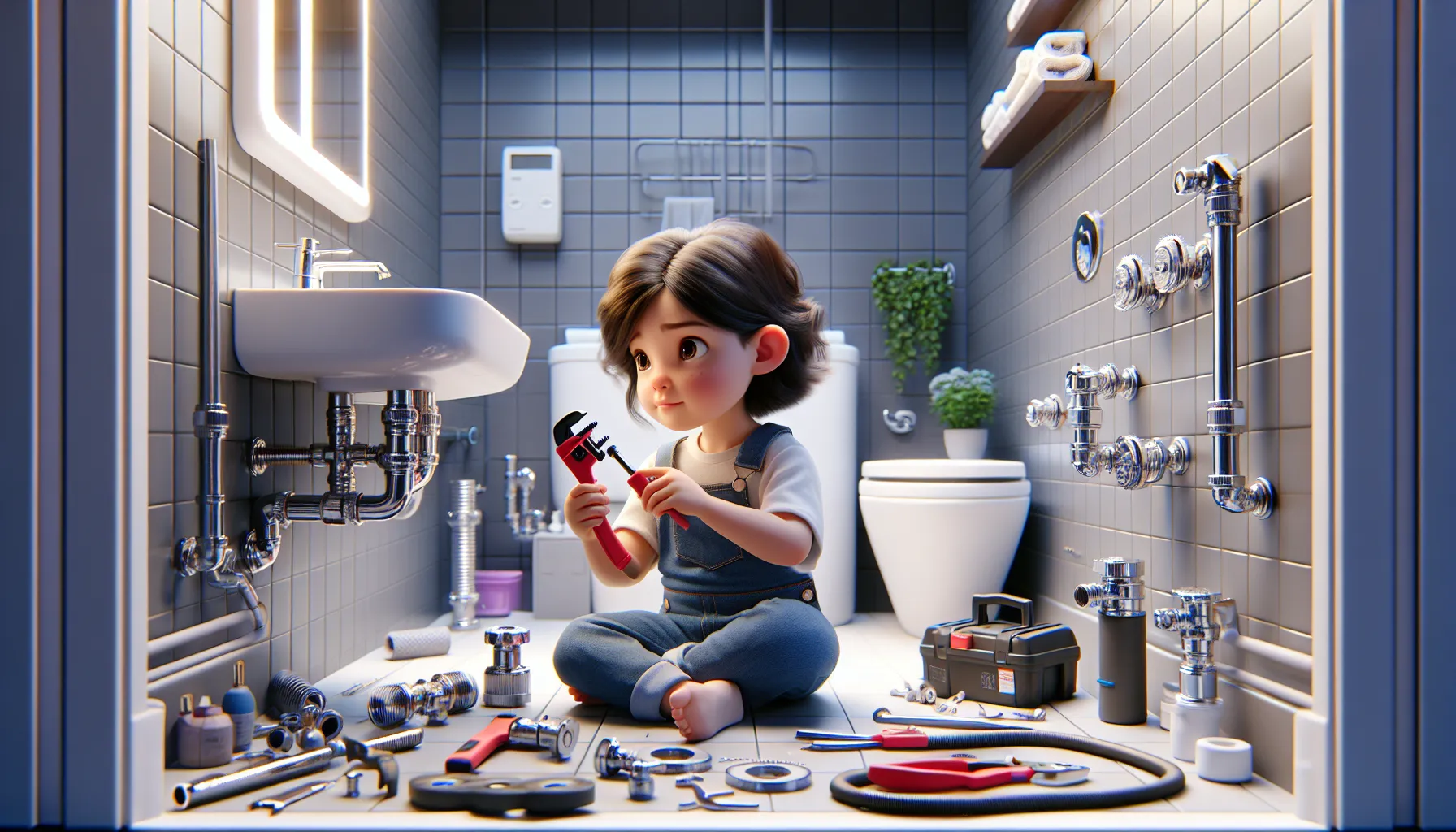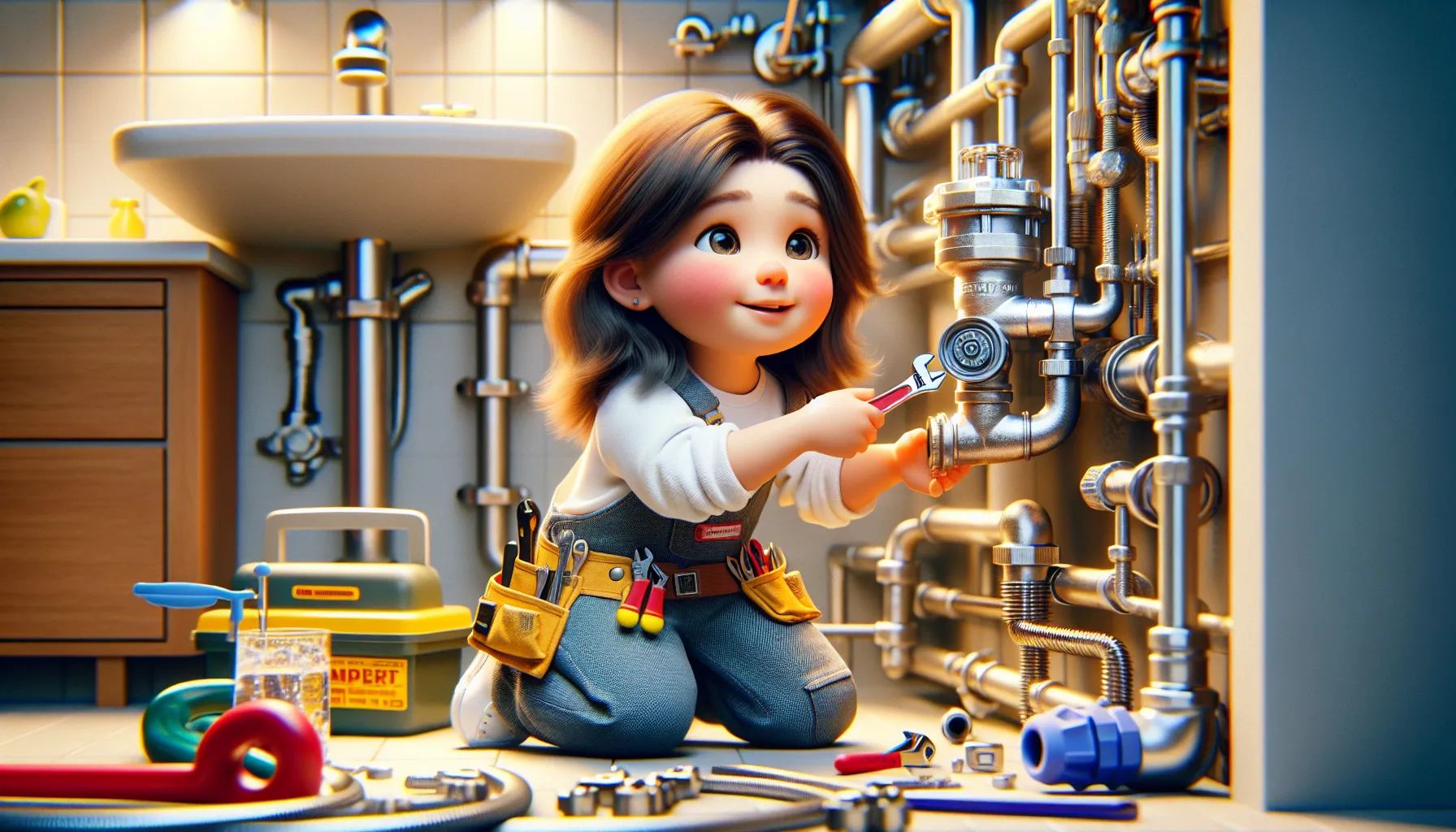Just as SUVs dominate the American vehicle landscape, drain cleaners are a common sight in many households. When used properly, drain cleaners can effectively unclog pipes and keep your plumbing system running smoothly. However, it’s crucial to understand the dangers associated with these powerful chemicals and how to use them safely.
Whether you opt for a chemical-based or natural drain cleaner, it’s imperative to follow the manufacturer’s instructions carefully to prevent accidents and damage to your pipes. By knowing how to effectively use drain cleaners, you can maintain a healthy and functional plumbing system in your home.
Key Takeaways:
- Choose the right type: Select a drain cleaner that is suitable for the type of clog you are dealing with, whether it is for hair, grease, or food residues.
- Follow instructions carefully: Always read and adhere to the manufacturer’s instructions on how to use the drain cleaner to avoid damaging your pipes or causing potential harm.
- Protect yourself: Wear protective gear such as gloves and goggles when handling drain cleaners to prevent skin irritation or accidental splashes.
- Ventilate the area: Ensure there is proper ventilation in the room when using drain cleaners to avoid inhaling harmful fumes.
- Consider natural alternatives: For a safer option, try using natural methods like a mixture of baking soda and vinegar or a drain snake to unclog drains before resorting to chemical cleaners.
Types of Drain Cleaners
Little clogs in the drain can quickly escalate into major plumbing problems if not dealt with properly. Drain cleaners are powerful tools that can help you clear those pesky blockages and keep your pipes free-flowing. However, it’s crucial to choose the right type of drain cleaner for the job to avoid causing damage to your plumbing system. Here are the different kinds of drain cleaners you can use:
| Chemical Drain Cleaners | Enzymatic/Biological Drain Cleaners |
| Mechanical Tools for Drain Cleaning |
Chemical Drain Cleaners
Types of chemical drain cleaners include acidic cleaners (such as sulfuric acid and hydrochloric acid) and alkaline cleaners (such as sodium hydroxide). These drain cleaners work by reacting with the clog to break it down and clear the pipe. While these cleaners can be effective in removing tough clogs, they can also be corrosive and may damage older pipes. It is important to follow the manufacturer’s instructions carefully and use these cleaners in a well-ventilated area to avoid inhaling fumes.
Enzymatic/Biological Drain Cleaners
Enzymatic/biological drain cleaners use natural enzymes and bacteria to break down organic matter in the drain. These cleaners are environmentally friendly and safer to use than chemical drain cleaners. They are ideal for regular maintenance to prevent clogs and keep your pipes clean. Enzymatic/biological drain cleaners are less harsh on your plumbing system and are a great option for households with small children or pets.
Drain cleaners that use enzymes are effective at breaking down fats, oils, grease, and other organic materials that build up in drains over time. These cleaners are safe to use in all types of plumbing systems and septic tanks, making them a versatile and eco-friendly choice for maintaining your drains.
Mechanical Tools for Drain Cleaning
It is important to have mechanical tools for drain cleaning such as a plumber’s snake or a drain auger in your toolkit for tackling stubborn clogs. These tools can reach deep into the pipe to break up blockages and clear the way for water to flow freely. Unlike chemical drain cleaners, mechanical tools do not involve the use of harsh chemicals, making them a safer option for clearing drains.
It is important to use these tools carefully to avoid damaging your pipes. Regular maintenance with mechanical tools can help prevent major clogs and costly repairs down the line. If you are unsure how to use these tools properly, it is best to consult a professional plumber for assistance.
This.
Proper Selection of Drain Cleaners
Identifying the Nature of the Clog
Nature of the clog plays a crucial role in selecting the right drain cleaner for the job. It is important to determine whether the clog is caused by organic matter, grease, hair, or mineral buildup. Using the wrong type of drain cleaner can worsen the situation, leading to potential damage to your plumbing system.
Compatibility with Plumbing Materials
Selection of drain cleaners should also take into account the compatibility with your plumbing materials. Some drain cleaners contain harsh chemicals that can corrode or damage certain types of pipes, such as PVC or older metal pipes. It is best to look for drain cleaners specifically formulated for the type of plumbing in your home.
Plus, always read the labels and instructions carefully before using any drain cleaner to ensure it is safe for your plumbing system. To avoid any mishaps, consider doing a patch test in an inconspicuous area of your plumbing to check for any adverse reactions before applying the cleaner to the clogged drain.
Safety Precautions
Despite the convenience and effectiveness of drain cleaners, it is crucial to prioritize safety when using these products. By following proper safety precautions, you can ensure a successful outcome and protect yourself from harm.
Personal Protective Equipment (PPE)
Any time you are handling drain cleaners, it is crucial to wear the appropriate personal protective equipment (PPE). This includes rubber gloves, safety goggles, and a protective apron to shield your skin and eyes from potential splashes or spills. Remember that even the mildest drain cleaners can cause irritation or burns on contact with skin or eyes, so taking this precaution is non-negotiable.
Safe Handling and Application Practices
Precautions should be taken when handling and applying drain cleaners to avoid accidents or injuries. When pouring the product into the drain, do not lean over the opening to prevent any splashes from coming into contact with your face. Always follow the manufacturer’s instructions carefully and never mix different types of drain cleaners, as this can result in dangerous chemical reactions.
Personal safety is paramount when working with drain cleaners. Be sure to keep the area well-ventilated by opening windows or using a fan to prevent the buildup of fumes. Additionally, be cautious when storing these products, keeping them out of reach of children and pets to avoid any accidental ingestion or exposure.
Understanding Product Labels and MSDS
Labels on drain cleaner products provide crucial information on proper usage and safety precautions. Make sure to read and understand the labels before using the product to prevent any mishaps. Moreover, familiarize yourself with the Material Safety Data Sheet (MSDS) for the specific drain cleaner you are using. The MSDS contains detailed information on the product’s composition, potential hazards, and appropriate safety measures.
It is crucial to stay informed and aware of the potential risks associated with using drain cleaners. By following the recommended safety precautions and understanding the product labels and MSDS, you can effectively and safely tackle drain clogs without compromising your well-being.
Application Techniques
Once again, applying drain cleaners may seem like a simple task but requires precision and attention to detail. Improper application can lead to inefficiency or even dangerous situations. In this chapter, we will discuss various application techniques for different types of drain cleaners to help you tackle clogs effectively and safely.
Step-by-Step Guide for Chemical Cleaners
For chemical drain cleaners, it is crucial to follow the manufacturer’s instructions to ensure safe and effective application. Below is a step-by-step guide to using chemical drain cleaners:
| Step 1: Wear protective gear, including gloves and safety goggles. | Step 2: Measure the appropriate amount of cleaner as directed. |
| Step 3: Slowly pour the cleaner into the drain and let it sit for the recommended time. | Step 4: Flush the drain with hot water to help clear the clog. |
Best Practices for Enzymatic Drain Cleaners
One of the advantages of using enzymatic drain cleaners is their eco-friendly and safe nature. When using enzymatic drain cleaners, it is vital to follow some best practices:
For optimal results, pour the recommended amount of enzyme cleaner into the drain at night before going to bed. This allows the enzymes to work undisturbed for several hours, breaking down organic matter and clearing the clog effectively.
How and When to Use Mechanical Cleaning Tools
Techniques involving mechanical cleaning tools such as a plunger, plumbing snake, or drain auger can be effective in clearing tough clogs. These tools are best used when the clog is near the surface and can be physically removed. Here are some tips on how and when to use mechanical cleaning tools:
Cleaning drains with a plunger is suitable for minor clogs in sinks or bathtubs. Ensure a tight seal around the drain and use quick, firm plunges to dislodge the blockage. Plumbing snakes are ideal for reaching deeper clogs in pipes, while drain augers can break up tougher obstructions.
Application of these mechanical tools requires caution and patience to avoid causing damage to the pipes. Always wear gloves and protective eyewear when using these tools and follow the instructions carefully for safe and effective results.
Preventive Maintenance
Not properly maintaining your drains can lead to clogs and backups, causing damage and inconveniences in your home. By practicing preventive maintenance, you can avoid costly repairs and keep your drains flowing smoothly.
Regular Drain Maintenance Tips
Maintenance tip #1: To avoid buildup in your drains, consider using a drain cleaner on a regular basis. Additionally, make sure to avoid pouring grease, oil, or coffee grounds down your drains as they can solidify and cause blockages. Any unusual odors or slow drainage should be addressed promptly to prevent further issues.
- Regularly clean your drains using a drain cleaner
- Avoid pouring grease, oil, or coffee grounds down drains
- Address any unusual odors or slow drainage promptly
Any signs of slow drainage or gurgling noises should be taken seriously, as they could indicate a potential clog in your pipes that needs attention.
Natural Alternatives for Drain Care
Preventive maintenance with natural alternatives for drain care can be just as effective as commercial drain cleaners but without the harsh chemicals. These alternatives are environmentally friendly and pose no harm to your pipes.
By using ingredients such as baking soda, vinegar, and hot water, you can create a natural drain cleaner that can help prevent clogs and keep your drains fresh and clean. These alternatives are safe to use regularly and won’t damage your plumbing system.
Troubleshooting Common Issues
When to Call a Professional
For the majority of clogs or slow drains, using a drain cleaner according to the product instructions should be sufficient. However, there are times when a professional plumber’s expertise is necessary. If you notice multiple drains in your home are backing up simultaneously, this could indicate a larger issue within your plumbing system. Additionally, if the use of drain cleaners doesn’t resolve the problem after multiple attempts, it’s best to call a professional.
Dealing with Persistent Clogs and Backups
Clogs and backups can be frustrating to deal with, especially if they happen frequently. While drain cleaners can be effective in clearing minor clogs, persistent clogs may require further intervention. If you find yourself facing recurring clogs or backups, it might be time to assess the underlying cause. This could involve tree roots invading your pipes, a collapsed pipe, or a grease buildup that needs professional attention.
For instance, if you have an older home with outdated plumbing or a history of clogs, it’s crucial to address these issues promptly to prevent further damage. Neglecting persistent clogs can lead to pipe corrosion, water damage, and even health hazards due to mold and bacteria growth.
Environmental Considerations
Biodegradability of Drain Cleaners
Now, when choosing a drain cleaner, it’s important to consider the biodegradability of the product. Biodegradable drain cleaners contain ingredients that can be broken down by natural processes, reducing their impact on the environment. These products are designed to be less harmful not only to your pipes but also to aquatic life and ecosystems.
Disposal of Chemicals and Wastes
Now, when it comes to the disposal of chemicals and wastes from drain cleaners, it is crucial to handle them properly to minimize their impact on the environment. Chemicals in drain cleaners can be hazardous if not disposed of correctly. It’s important to follow local regulations and guidelines for hazardous waste disposal to prevent contamination of soil and water sources.
Considerations: When disposing of chemical waste from drain cleaners, never pour them down the drain or flush them down the toilet. Contact your local waste management facility for proper disposal methods. By handling these chemicals responsibly, you can help protect the environment and prevent harm to wildlife and ecosystems.
Summing up
Conclusively, when it comes to using drain cleaners, it is important to prioritize safety by carefully reading and following the instructions on the product label. Always wear protective gear such as gloves and safety goggles, and keep the area well-ventilated during use. Additionally, choosing the right type of drain cleaner for the specific clog and plumbing system can help ensure effectiveness and prevent potential damage.
By understanding the different types of drain cleaners, knowing how they work, and following proper usage guidelines, you can safely and effectively tackle clogs in your plumbing system. Remember that for persistent or severe clogs, it’s best to consult a professional plumber to avoid any further damage to your pipes or fixtures. With the right precautions and knowledge, you can confidently maintain your drains and prevent costly plumbing emergencies.
FAQ
Q: What are drain cleaners?
A: Drain cleaners are chemical products used to unclog or clear blocked drains. They work by dissolving debris, grease, hair, and other materials that build up in pipes.
Q: How do drain cleaners work?
A: Drain cleaners work by creating a chemical reaction that generates heat, which helps to break down the blockage in the drain. They can be acidic (sulfuric acid or hydrochloric acid-based) or alkaline (sodium hydroxide-based).
Q: Are drain cleaners safe to use?
A: Drain cleaners can be hazardous if not used properly. It is necessary to follow the manufacturer’s instructions carefully, wear protective gear such as gloves and goggles, and ensure proper ventilation when using drain cleaners.
Q: What are the precautions to take when using drain cleaners?
A: Precautions when using drain cleaners include keeping children and pets away from the area, avoiding mixing different types of drain cleaners, and never using a plunger after pouring drain cleaner as it can splash back.
Q: Are there alternatives to chemical drain cleaners?
A: Yes, there are natural and mechanical alternatives to chemical drain cleaners. These include using a drain snake, a plunger, baking soda and vinegar, or hot water to clear minor clogs in drains without the use of chemicals.



